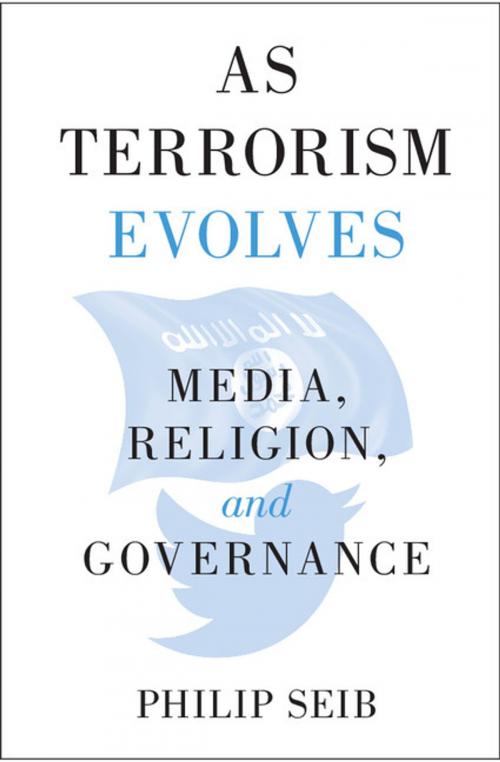As Terrorism Evolves
Media, Religion, and Governance
Nonfiction, Social & Cultural Studies, Political Science, International, International Relations, Social Science| Author: | Philip Seib | ISBN: | 9781108317689 |
| Publisher: | Cambridge University Press | Publication: | October 5, 2017 |
| Imprint: | Cambridge University Press | Language: | English |
| Author: | Philip Seib |
| ISBN: | 9781108317689 |
| Publisher: | Cambridge University Press |
| Publication: | October 5, 2017 |
| Imprint: | Cambridge University Press |
| Language: | English |
Some of the world's most lethal terrorist organizations have become media-centric enterprises, while also hijacking a major world religion, holding large swathes of physical territory, and governing their own virtual states. In this concise and penetrating book, Seib traces how terrorism has proliferated and increased significantly in menace in the relatively brief period between the rise of al-Qaeda and the creation of Islamic State. With close attention to the linkages between media, religion, and violence, the book offers incisive analysis of how organizations such as Islamic State, al-Qaeda, and Boko Haram operate and reflects on how terrorism may continue to evolve. Seib argues that twenty-first-century terrorism is enabled by new media and depends on social networks as connective tissue, while interacting simultaneously with religion and socio-economic and political grievances. As Terrorism Evolves prescribes new measures for counterterrorism efforts, underscores the importance of soft power, and makes a strong case for recognizing that we have entered an era of terrorism of undetermined duration.
Some of the world's most lethal terrorist organizations have become media-centric enterprises, while also hijacking a major world religion, holding large swathes of physical territory, and governing their own virtual states. In this concise and penetrating book, Seib traces how terrorism has proliferated and increased significantly in menace in the relatively brief period between the rise of al-Qaeda and the creation of Islamic State. With close attention to the linkages between media, religion, and violence, the book offers incisive analysis of how organizations such as Islamic State, al-Qaeda, and Boko Haram operate and reflects on how terrorism may continue to evolve. Seib argues that twenty-first-century terrorism is enabled by new media and depends on social networks as connective tissue, while interacting simultaneously with religion and socio-economic and political grievances. As Terrorism Evolves prescribes new measures for counterterrorism efforts, underscores the importance of soft power, and makes a strong case for recognizing that we have entered an era of terrorism of undetermined duration.















